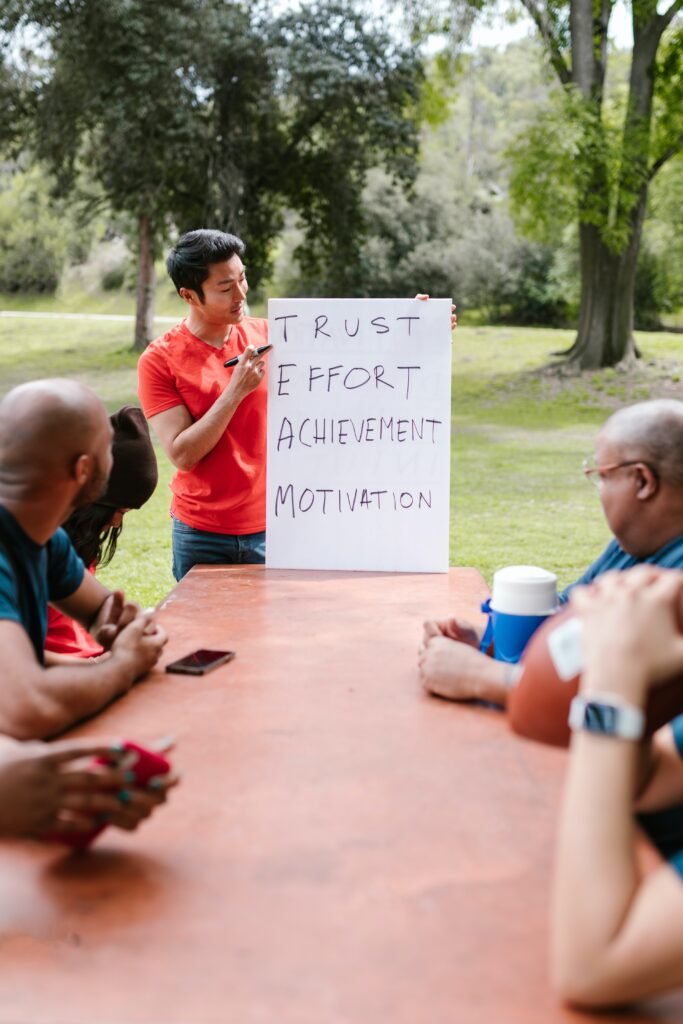Improving Skills

In Part 1 of my article on Leadership I wrote at large about defining leadership skills, What are leadership skills, and why is it important to develop leadership skills. I also wrote about the skills that a leader should focus upon. It emphasized 5 key points for a leader to look into.
Summing up I had asked few questions that as a leader one should ask to have better understanding of themselves.
Once you have understood about where you stand, it’s easier to take action towards developing the skills.
In this chapter, I will take you through steps on How to Improve Leadership Skills. Before we delve into it let’s understand why it’s important.
Apart from financial and personal growth, leadership positions are the most desired path that any working professional. Growing as a leader within an organization is not only considered a career advancement but also unlocks opportunities for recognition and to connect with fellow leaders, especially for those who have worked on developing leadership skills. How far an individual can go up the ladder depends on the roles that are available in an organization.
In order to be considered a leader it is important to develop the skills required for that leadership role. It is not easy to gain these skills as they require as it requires both experience and skills and the most important of all is the individual’s right attitude toward self-development.

Skills serve as the base for any professional who wants to take a leadership path in their career. Let’s go step by step and understand “How to improve Leadership Skills”:
Table of Contents
1. Make a Plan:
Once you have identified your strength and weakness you are ready to take action by making a plan based on your style of leadership. Work on your weakness For example if you are not good at numbers. What should be your game plan?
a. Work on numbers: Seek help to understand. But before this, you need to list down what you understand.
b. Practice numbers and their interpretation, you will start mastering the same.
c. Seek help: Seek help if required to master the art.
2. Be Involved:
What I want to say by “Be Involved” is to be passionate about what you do. Literally, it means that you need to deep dive as if your entire career is dependent on it. i.e never give up because without this innovation will stop. In other words, if you are not passionate about the work you will stop finding solutions and stop thinking outwards.
3. Inspire Others:
Connect With Team members. It works on mutual trust. Team members respond to leaders who are eager to help them and make them learn. Action should be like walking the talk and encouraging personal and professional growth.

4. Work On your Strengths:
Why I am saying this is when we embark on our journey of improving our leadership skills we largely focus on our weaknesses. If you are good at communication improve it further. Areas of improvement for leaders are endless including your strength areas.
5. Set Clear Goals and expectations for yourself and your employees and Execute them:
Invest time in setting up your and your employees’ goals. Set clear expectations. In other terms what I want to say that you need to do is set the right plan and a benchmark that is meaningful. This will lead you to a road map to follow week after week to achieve your goals. Periodically revisit the goals and modify them or rearrange them as needed. Once you achieve your goal set another and strive to achieve another benchmark.
6. Taking Ownership:
Being a leader does not mean you will not make mistakes. Even the most inspiring and successful leaders do make mistakes. When you come across mistakes. Acknowledge, make corrections and move on. Be open about your failures and discuss them with yourself and your team. Learning from failures and overcoming them send a great message to people around you.
7. Keep Learning:
As a leader one has to keep learning new things. This help to keep your mind sharp and upgrade your skills. It may help you to overcome new challenges.
8. Be a Good Listener:
One of the important skills is to be open to listening to suggestions, ideas, and feedback from other people. And build on them.
9. Resolve Conflict:
As a leader, it is critical to resolving interpersonal conflicts by talking to those involved privately. It’s also important to reassess your team members the conflict and be open to reassigning tasks to team members if the conflict is not resolved.

10. 360 Degree feedback and Self-Assessment:
No one understands you better than yourself. Do a self-assessment of your skills, performance, and leadership skills. At the same time take feedback from your mentor and fellow professionals including your own team members. Match them with your own self-evaluations sheet and you can find your next goal and self-improvement.
NOTE: Remember you have to be receptive to feedback from your team members and fellow employees.
11. Find Your Higher Purpose:
On your journey to developing leadership skills it is important to know where you are putting your energy and time. By this, I want your attention toward a larger purpose in my career. You will have to choose from
a. Larger paycheck for a good job so that your family remains secure.
b. Prestige due to higher rank
c. Your work has made changes that have impacted the industry positively.
The purposes mentioned above are high purposes and you need to identify and choose where you can operate more confidently.
Conclusion:
Your leadership style plays a role in how you interact with employees and should be evaluated as well. The best leaders are able to adapt each style to their situations and employees. Remember that being a good leader takes time. Although some individuals are naturally inclined to have good leadership skills, it is something anyone can learn and improve upon. With hard work, dedication, and strategic planning, you can lead your team to success.
As you hone your effectiveness as a leader in your own life — whether that’s in a professional or personal capacity — you’ll strengthen the efforts you put into your own goals. Those around you will see the hard work and passion you bring to the table each day, stirring them to work on developing leadership skills, too.
At the end I would say update yourself with the skills listed above and use it as your growth ladder as in an organization
For me Leadership is:-
– Achieving Organisational Goals.
– Meeting Individual Aspirations.
– Ensuring Team Bonding.

